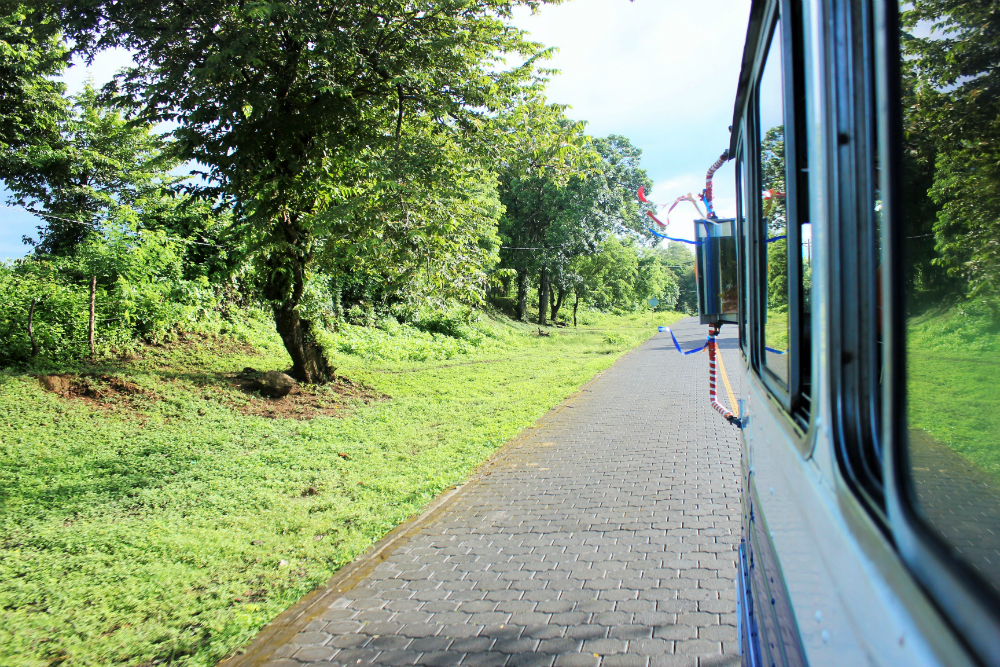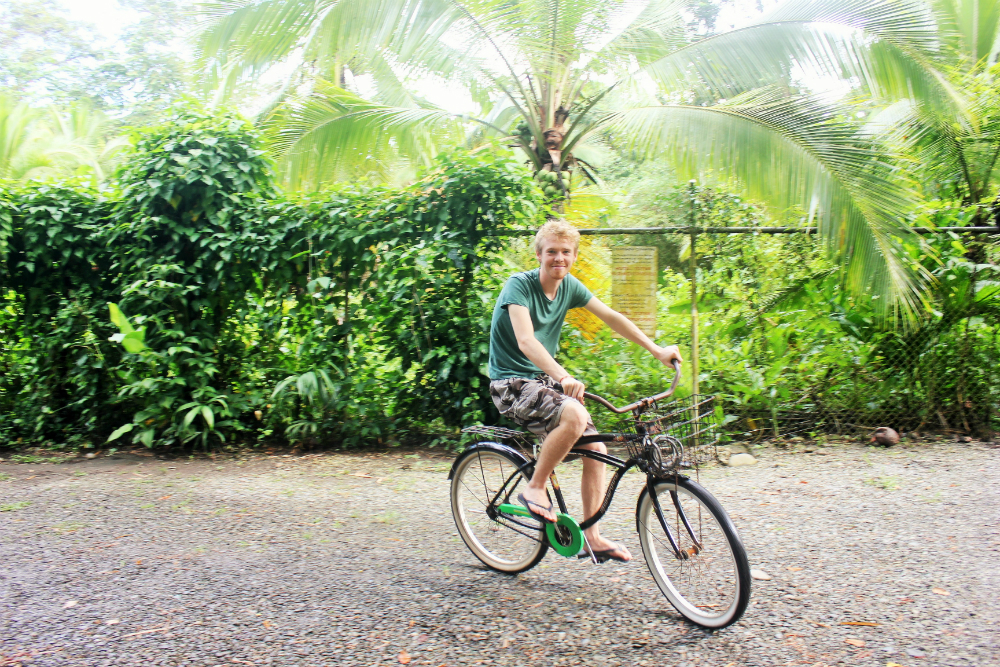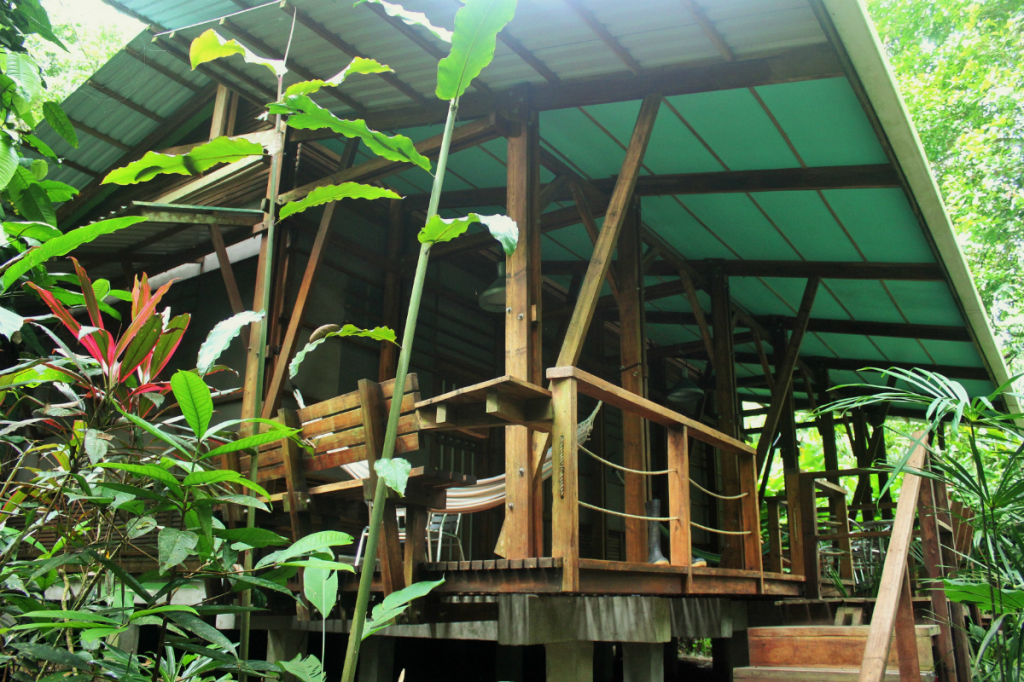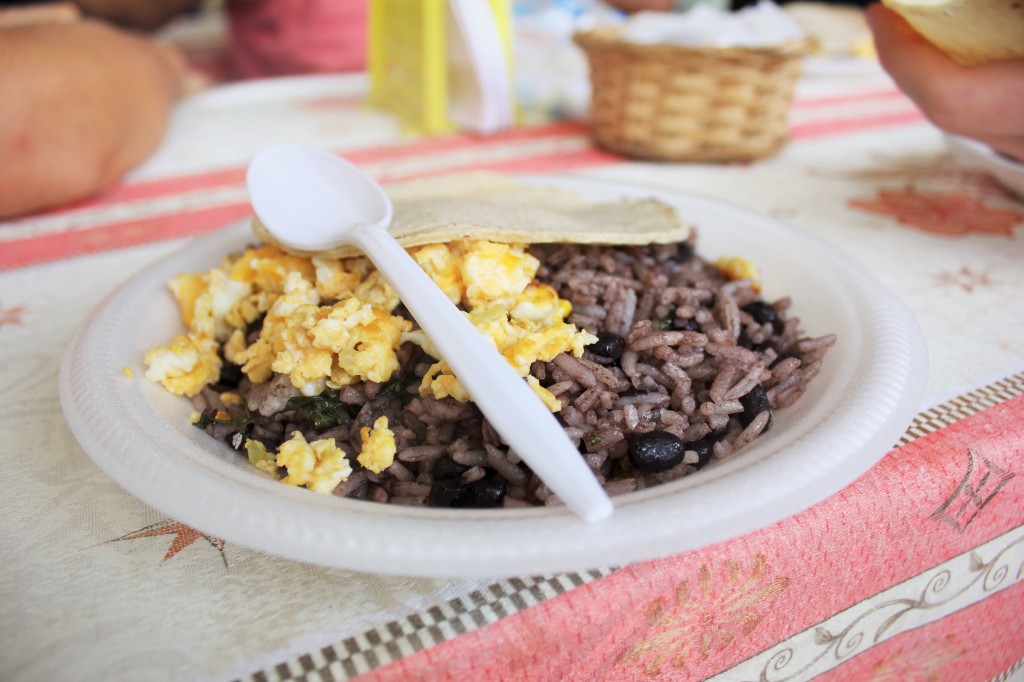Budget Travel is Eco-Friendly – Here’s Why

If there’s one thing that us travel bloggers hate to admit, it’s that our lifestyle can be very harmful to the earth. But travelling on a budget can help with that problem.
There’s a real catch twenty-two for travellers: while we are travelling to see the world’s natural beauty and immerse ourselves in local culture, travelling so frequently can have a very negative effect on the natural and cultural environment. As fellow travel blogger Shing from the Culture Map pointed out in a thoughtful blog comment to me, taking steps to minimise our footprint and making eco-friendly choices as often as possible, especially for those of us who travel so much, is essential for protecting our beautiful planet.
Budget travel isn’t something that is frequently linked to eco-friendly travel, but I have to say, travelling on a tight budget has definitely made me more aware and more eco-friendly. Now that Luke and I have become freelance writers and long-term travellers, our budget is tighter than ever before and this has changed our style of travel for the better.

Fewer Flights
My cousin, who has been trying to save up his paper round money to visit Ecuador, said to me a couple of weeks ago: “You’re so lucky, you can just go anywhere you want, whenever you want. You could just book a flight to Ecuador right now.” While there is some truth in this, Luke and I actually can’t afford to fly very frequently. We work hard to make sure that our bank accounts always have enough for that emergency flight home should we ever need it (touch wood) but our budget doesn’t allow for us to fly around at the drop of a hat.
Flying has a detrimental impact on the environment because of the associated CO2 emissions and its contribution to global warming. The more weight planes have to carry, the more fuel they burn and the more greenhouse gases they emit. Thanks to our budget, we fly far less than ever before and only take carry-on luggage. This year, we’ve only taken three flights: a return trip to Poland and a one-way ticket to Costa Rica. Yet we’ve still managed to see four new countries.

More Public Transport
With flying off the cards, travelling between countries usually means hopping on a bus. Taking the bus, rather than flying, will cut your emissions by 55-75%. By crossing the Nicaraguan and Panamanian borders on (painfully slow) public transport, we’ve not only saved money, but also cut C02 emissions.
As for cars, while I sometimes dream of a rental car when we end up stranded in train stations for hours or stopping off at the world’s grimiest bus station toilets, it’s hard to justify the cost when public transport will take you to the same places for a fraction of the price.

Travelling by bus in Nicaragua, it’s not luxury but it does the job.
Always Opting to Walk or Cycle
Though we’ve had to hop in the occasional taxi during transit through cities, whenever we’re pitched up in a place, we are avid walkers and bike renters. You can’t argue with a $5 bike rental and, well, walking is free. Not only is walking good for your health, the environment and your wallet, but we’re also big believers in the idea that the best way to get to know a place is to explore on foot. When walking in new places, I often think about all the cool stuff I would’ve missed if I was whizzing by in a car. Likewise, if you want to enjoy longer stretches of coastline or scenic routes, like during our recent trip to Puerto Viejo, nothing beats a bicycle.

Cycling is so green that we do it in green t-shirts too.
Saying ‘No Thanks’ to Air-Con
At the risk of sounding like a cranky old lady, I think that air conditioning is a dangerous invention! You can live without it, but once people get a taste, they seem to get hooked. Soon they are unable to comprehend life without it. Some tourists go from air-conditioned bubble to air-conditioned bubble, without stepping outside to explore the world outside.
We survived the sweltering heat of a Taiwanese summer without an air conditioner (due to our budget, environmental concerns and laziness) and it certainly toughened us up. After that summer, we’ve been able to stay in tropical rooms from Vietnam to Costa Rica without once needing an air conditioner. Hotels constantly try to up-sell us rooms with air-con, but we’ve always felt that a fan will suffice. Not only does air-con chug through energy, it also releases nasty emissions. If we have the choice, rooms designed with passive cooling in mind are a far better solution and are much more enjoyable places to stay!

The cabins here at La Kukula are designed to use passive cooling – not an air-con in sight!
Eating Local Food
I’ve written at length about the importance of eating local when you travel, so I’ll keep it short. Since coming to Costa Rica, we’ve become keen advocates of eating local. The farmer’s markets here are incredible and not only is the produce cheaper than shopping in the supermarkets, but it’s also fresher and more delicious. Eating local food means that the produce hasn’t had to be flown or shipped half-way around the world and so this is a great way to reduce your carbon footprint. Not to mention that eating imported food isn’t a good way to experience the local culture, support the local economy or keep travel costs low!

Eating local at the Pursical farmer’s market, the best way to start a Saturday.
When it comes to travelling on a budget, it’s great to know that this can help you to be a more eco-friendly traveller. When you think about it, environmentalism and efficiency go hand in hand, so what’s not to like about travelling greener, cheaper, and smarter? From doing little things like re-filling your plastic water bottle and investing in a lunch box to avoid too much plastic, from flying less frequently and opting for public transport, every little counts when it comes to protecting our the environment.
Do you have any other tips for eco-friendly travel on a budget that you would like to share? There’s always more to learn and I would love to hear!





Franca
I have to agree with you Charlie, travelling on a budget can be also a way to be more eco-friendly for the reasons you listed. It would be nice though if even travellers with a bigger budget that can afford a different kind of lifestyle, would make the same choices we do, it would make so much sense and it’d be so incredibly helpful for the environment.
Charlie on Travel
It would be nice and I’m sure that many of them do. I always wonder about that though as the temptation much be so much more to always make the luxury, quicker and easier choices that unfortunately aren’t always more eco-friendly. It’s nice to see from travel blogs that many travellers of all different means do do their bit for the environment though :)
Amelia Easten
You survived without aircon in Taiwan? Respect. I used it a little and my flatmates used it far more, so our bills for the summer were crippling. I completely agree with you about budget travel being more Eco-friendly though. When I can, I always prefer to buy produce from markets – cheaper and no packaging. Another point is stuff. When I came to leave Glasgow, I was horrified by how many clothes I had. The water taken to make them, the air miles, the labor, etc.. Now I try to not buy anything unless I need it, to only buy second hand, and to only have as much as I can fit in my bag. Definitely another Eco-conscious side-effect of travel.
Charlie on Travel
Yep, and it was pretty horrible for July and August. The rest of the year was totally fine though. Our friends had crippling air-con bills in the summer too. Taiwan ahas good markets too, though it took me a little while to sort through the weirdo dried fish stalls and finally find the beans, chickpeas, split peas and lentil stalls haha. I also mostly own only basic or second hand clothes and have only bought one item of clothing (from a second hand store) in the past 8 months. I always forget about clothing really, but you’re right, definitely another eco-friendly move.
Valerie
I agree – travelling on a budget defineitly makes one become more ecro friendly. Few flights and more walking and biking more than anything.
Charlie on Travel
Yes – and walking and biking are excellent ways to enjoy new places :)
Amanda Burger
Great article! It’s awesome to share eco-freindly tips and ideas! And, you’re so right- people get way more ‘green’ when traveling (which is great)!
Charlie on Travel
Thanks, Amanda! Glad that you found the article interesting :)
Matthias
We are very much planning on doing the same and following these point as much as possible when we start our rtw backpacking trip!
It might be slightly off-topic, but I think that being savy AND eco-friendly doesn’t work as well in all countries and all situations. If you want to travel in the UK (say Scotland to London) flighing is by far the cheapest and quickest option. I know it’s not eco-friendly, but as much as I would love to take the train; spending at least 3 times as much compared to flying is not really budget travelling. Bus journeys are cheaper, but (quite often) go at really awkward times.
Charlie Marchant
Awesome, so great to meet other eco-aware travellers! I agree that sometimes the two don’t always equate, especially with the example of economy flights between UK and Europe that are becoming so cheap. Equally, flying in economy class is more eco-friendly than flying on higher-end planes and, depending how far the bus/train journey is, sometimes equal to or slightly better environmentally as well.